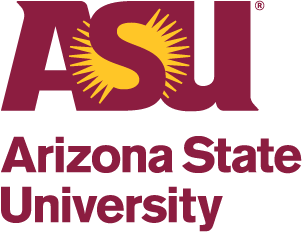 We asked W. P. Carey Alumni: What was the hardest lesson you had to learn entering the workforce post-graduation?
We asked W. P. Carey Alumni: What was the hardest lesson you had to learn entering the workforce post-graduation?
Here is what they shared:
- Career Change Takes Perseverance
- Skills Matter
- The Power of The ASU Network in The Southwest
- The Shift to Annual Work Cycles Over Quarterly School Cycles
- I Prefer Self-Employment
Career Change Takes Perseverance
Coming out of my MBA program I assumed I would be able to change careers within a few months but that was not the case. It wasn’t that I didn’t have any offers, it was that the offers I had weren’t quite what I was looking for. After a year of searching, I was offered a position in a global marketing organization and it just felt right. I am glad I waited for that position to come around, it set me on a wonderful trajectory.
Joel Polanco, MBA ‘10, Intel
Skills Matter
When I was re-entering the workforce, upon completion of my undergraduate degree (in business at ASU), I quickly learned that my credentials were essential to obtain a position, but that my experience/ability to solve problems was much more critical. In the interview process, touting your credentials, without focusing on your skills, is a mistake that may cost you a second interview or an offer. Even if you do not have a lot of work experience, you likely worked on projects in which your problem-solving skills were put to the test. Give the interviewer a good reason to offer a position or ask you back for a second round – they will appreciate it if you make their job that much easier.
Roger Coventry, MBA ‘01, Childers & Coventry, LLC
The Power of The ASU Network in The Southwest
The biggest lesson I learned trying to find a job post-graduation is that ASU is much more respected and has a stronger alumni network in the Southwest for finding your first job.
I moved back to my home state of Washington and lost the power of the ASU brand in the Northwest. I was competing against UW, U of Oregon, and other local state and liberal arts universities with hiring managers who had graduated from those universities.
As a recruiter for the past 10 years, I’ve witnessed this first-hand inside companies as well.
Stay in Arizona to get your first job with a household name company, put in your years of work, and then if you want to move elsewhere you’ll be able to secure employment based upon your work performance in that position.
Marsh Sutherland, MBA ‘94, Ocient
The Shift to Annual Work Cycles Over Quarterly School Cycles
The hardest lesson I had to learn the fall after graduating undergrad was that I was now working and had to adjust the time horizon on my goals. I was so used to thinking in quarters and getting mid-quarter/quarterly grades. Now at work, I needed to look towards an annual cycle of work. What were the busy peak periods? I ended up setting quarterly project goals (and milestones during the quarter) to keep myself motivated and create personal feedback loops for my performance.
Michelle Tinsley, MBA Finance & Supply Chain ‘99, YellowBird Holdings Inc
I Prefer Self-Employment
I graduated from the W. P. Carey School of Business in 2005 with a degree in Business Management. Jumping into the workforce I really struggled because I didn’t know it at the time but I hated taking orders from other people. I moved from job to job but the change I really needed was to start my own business. I finally took the leap in 2007 and have been self-employed ever since. It was the smartest business move I ever made.
Adam White, BS Business Management ‘05, SquidVision.com
Terkel creates community-driven content featuring expert insights. Sign up at terkel.io to answer questions and get published.


